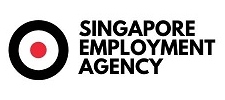The Foreign Worker Levy (FWL) in Singapore is a pricing mechanism designed to regulate the employment of foreign workers in the country. Employers who hire Work Permit or S Pass holders are required to pay a monthly levy for each foreign worker they employ. The FWL is an important aspect of the government’s efforts to manage the number of foreign workers in Singapore’s workforce.
Here are some key points about the Foreign Worker Levy in Singapore:
1. **Levy Liability**:
The levy liability begins from the day the Temporary Work Permit, Work Permit, or S Pass is issued, whichever is earlier. It continues until the permit is canceled or expires. Employers are responsible for paying the levy as long as the foreign worker remains employed.
2. **CPF Contributions**:
Employers are not required to make Central Provident Fund (CPF) contributions for foreign workers. Instead, they pay a monthly levy.
3. **Levy Rate and Quota**:
The amount of the levy paid by an employer depends on two main factors:
– The qualifications of the foreign worker.
– The number of Work Permit or S Pass holders hired.
4. **Worker’s Qualifications**:
Foreign workers with relevant academic or skills-based qualifications and certificates are considered higher-skilled workers and may qualify for a lower levy rate.
5. **Dependency Ratio Ceiling (Quota)**:
Each sector has a maximum ratio of foreign workers to the total workforce that companies are allowed to employ. This is known as the Dependency Ratio Ceiling (DRC). Employers cannot exceed the DRC for their sector.
6. **Higher-Skilled Worker Levy**:
Upgrading a foreign worker to higher-skilled status can reduce the employer’s levy costs. The exact levy rate for higher-skilled workers depends on the sector.
7. **Upgrade Options**:
– In the construction sector, there are four ways to upgrade workers to higher-skilled status, including CoreTrade, Multi-Skilling Scheme, Direct R1 Pathway, and Market-Based Skills Recognition Framework (MBF).
– In other sectors like manufacturing, marine shipyard, process, or services, workers can apply for higher-skilled status by submitting educational or trade test certificates.
8. **Welding Trade Test**:
In certain sectors like process and marine shipyard, workers may need to meet specific criteria, such as having their welding trade test endorsed by recognized institutions, to qualify for the higher-skilled worker levy.
9. **Levy Rates**:
Levy rates for S Pass and Work Permit holders vary by sector and worker qualification. Employers should check the Ministry of Manpower (MOM) website for the most current levy rates and any updates.
10. **Note on S Pass Quota**:
The S Pass quota is counted within the Work Permit quota for all sectors.
11. **Daily Levy Rate**:
There is a daily levy rate for S Pass holders who did not work for a full calendar month. It is calculated based on the monthly levy rate.
Employers in Singapore are required to comply with these regulations to manage the employment of foreign workers and ensure that they meet the necessary qualifications and quotas set by the government. It’s essential for employers to stay informed about changes in levy rates and policies by referring to official sources like the Ministry of Manpower (MOM) for updates.
If you have any company-related queries, you may email us at [email protected]. When in doubt, seek legal advice or consult an experienced licensed Employment Agency with the Ministry of Manpower.
Yours Sincerely,
The editorial team at Singapore Employment Agency
For more useful articles and videos, visit the Singapore Employment Agency resource page.
If you would like to submit a question or would like us to do an article on certain topics, please email us at [email protected].
Little Big Employment Agency Pte Ltd is a licensed Employment Agency with the Ministry of Manpower with license number 19C9790.

